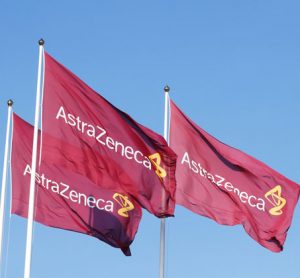AstraZeneca advances MedImmune’s benralizumab to Phase III in severe asthma
Posted: 30 October 2013 | | No comments yet
The goal of CALIMA is to determine whether benralizumab reduces the number of exacerbations in patients with severe asthma that remains uncontrolled…


AstraZeneca today announced the start of the Phase III Windward programme for benralizumab, a potential treatment for severe uncontrolled asthma developed by MedImmune, the company’s global biologics research and development arm. The goal of CALIMA, the first study in the Windward programme, is to determine whether benralizumab reduces the number of exacerbations in patients with severe asthma that remains uncontrolled, despite receiving high doses of inhaled corticosteroids in combination with a second controller such as a long-acting beta agonist.
Benralizumab is a monoclonal antibody binding to the interleukin-5 receptor (IL-5Rα) that depletes eosinophils, a type of white blood cell, which play a critical role in the cause and severity of asthma and asthma exacerbations. Emerging evidence shows that for patients with elevated eosinophil counts, treatment with an IL-5 inhibitor in addition to guideline-based strategies may improve their asthma control and decrease the frequency of asthma attacks.
“We are pleased to begin the Phase III trial programme for benralizumab and advance innovative research in respiratory disease, a core therapy area for AstraZeneca,” said William Mezzanotte, Vice President and Head of Respiratory & Inflammation and Neuroscience in AstraZeneca’s Global Medicines Development unit. “The development of benralizumab underscores our commitment to addressing and ultimately changing the course of chronic respiratory diseases through targeted and personalised treatment. Benralizumab has the potential to address an important area of unmet medical need as there are currently limited treatment options available for patients with severe uncontrolled asthma.”
The CALIMA trial will evaluate the safety and effectiveness of benralizumab in actively reducing exacerbations in patients with uncontrolled asthma. The study will also assess the effect of benralizumab on lung function, asthma symptoms and other asthma control measures, as well as emergency room and hospitalisation rates due to asthma. Trial participants will be classified in the trial based on blood eosinophils measured through a simple blood test. They will be administered benralizumab subcutaneously via a pre-filled syringe.
Initiation of this trial is based on results from the Phase IIb asthma study, conducted by MedImmune, which showed that patients with elevated eosinophils on benralizumab had a statistically significant reduction in exacerbation rate compared to placebo, as well as improvements in lung function and asthma symptoms. The efficacy and safety data from this trial supported the progression of benralizumab into our Phase III programme. These results are expected to be shared at a scientific conference in the first half of 2014.
In addition to CALIMA, the Windward programme will include two pivotal exacerbation trials for benralizumab added to high- (SIROCCO) or medium- (PAMPERO) dose inhaled corticosteroids plus a long-acting beta agonist; an oral corticosteroid-reducing trial (ZONDA); and a long-term safety trial (BORA). These trials are designed to provide additional information about benralizumab in patients with severe uncontrolled asthma.
Benralizumab is in-licensed from BioWa, Inc., a wholly-owned subsidiary of Kyowa Hakko Kirin Co., Ltd. Under the exclusive license agreement, Kyowa Hakko Kirin/BioWa have exclusive development and commercialisation rights for benralizumab in Japan and certain countries in Asia. AstraZeneca has exclusive rights for benralizumab in all other countries including the US and Europe. BioWa is eligible for milestone payments and royalties related to the development and commercialisation of benralizumab in those countries.




